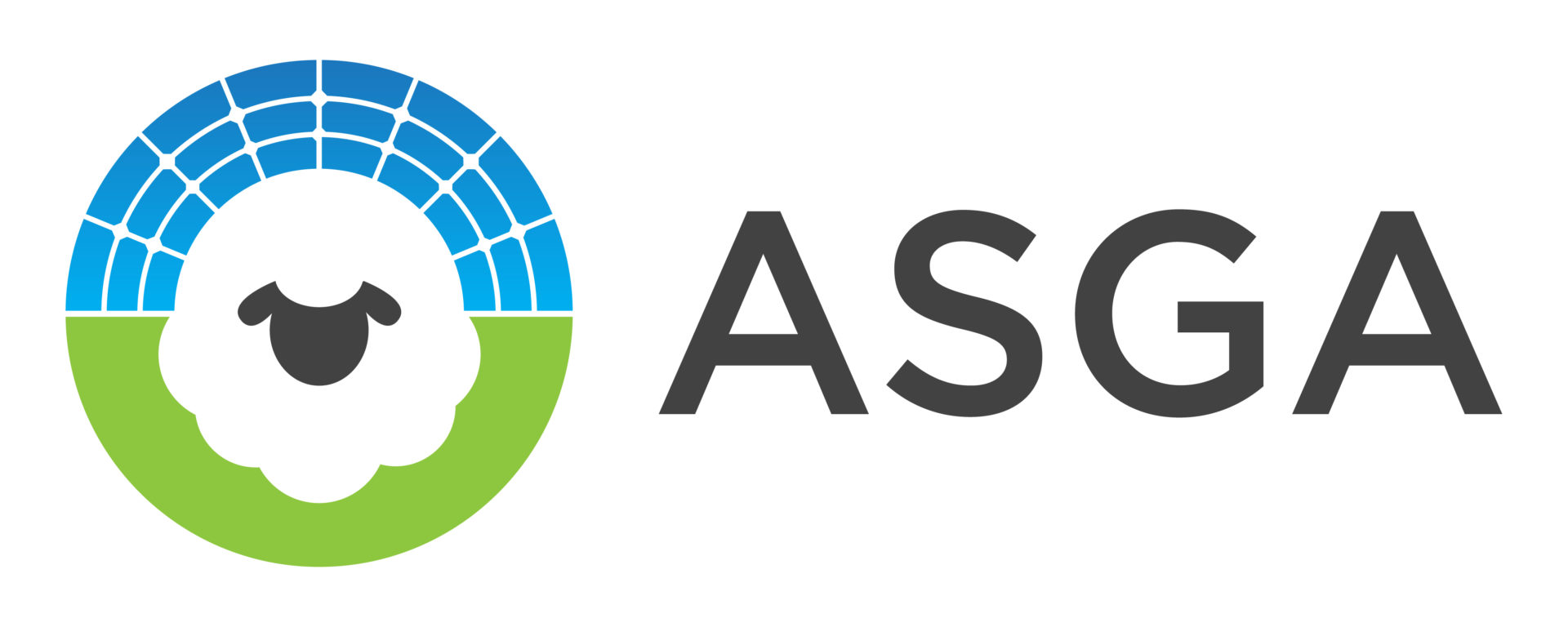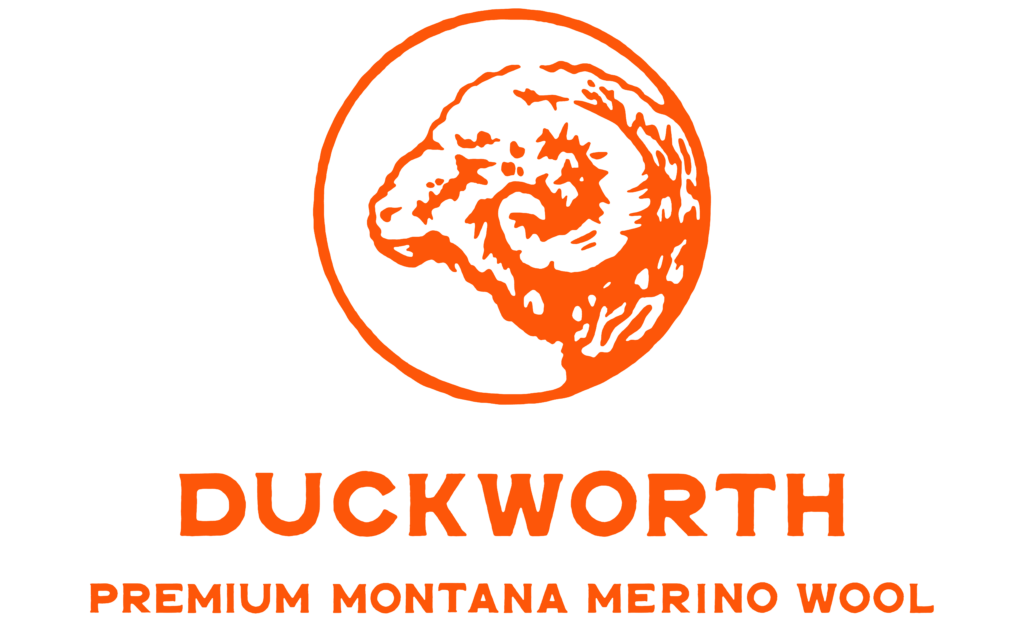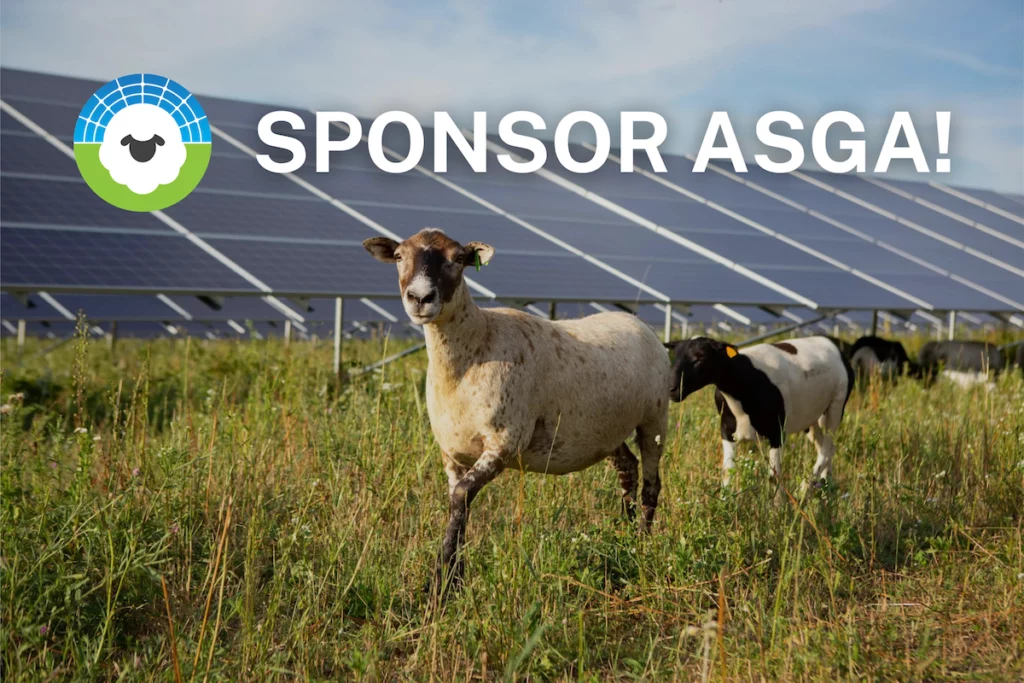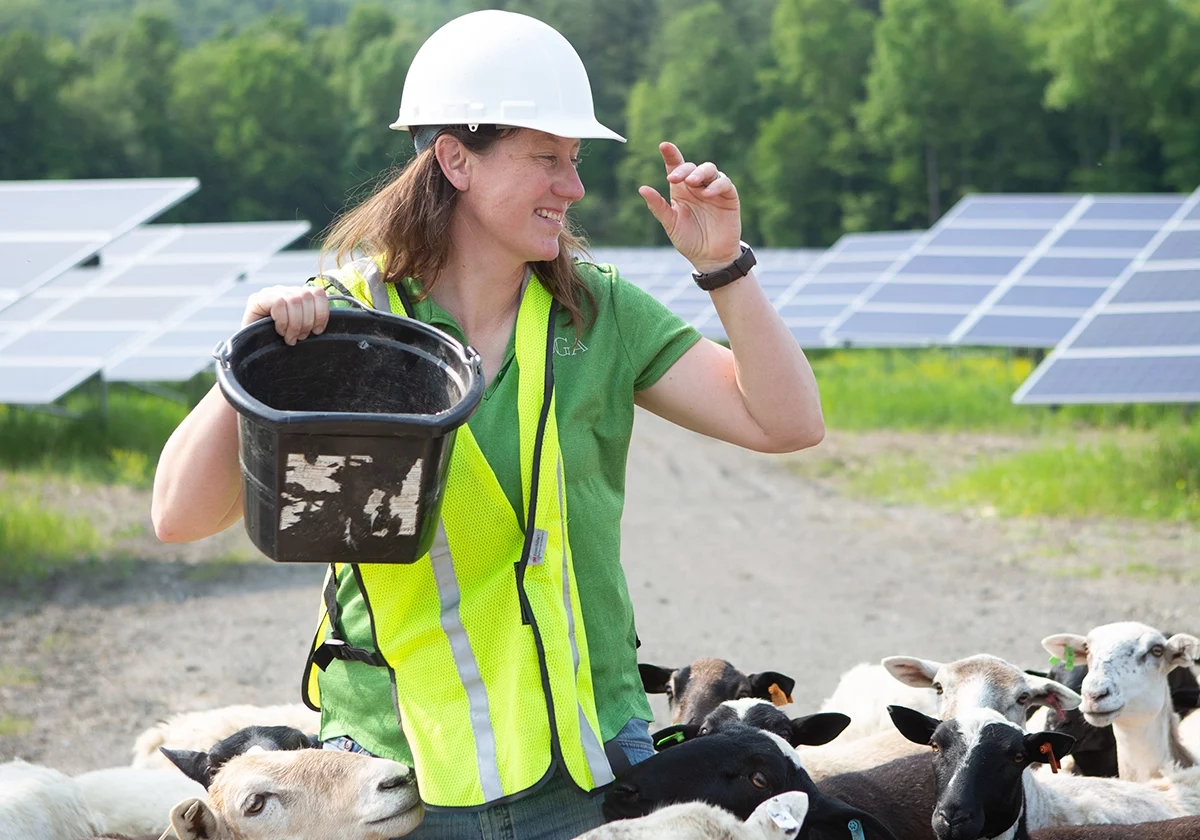ASGA Call 66 Replay: Opportunities for Solar Wool Part II – Soil Stability and Erosion Control for Renewable projects
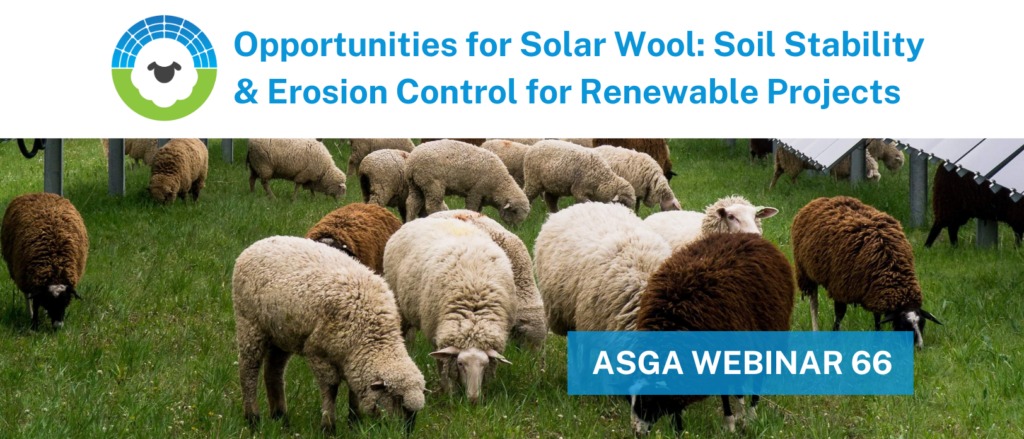
For our second webinar on potential markets for solar wool, Rob Ament (Montana State University’s Western Transportation Institute) explored the market opportunities for using U.S. wool fiber in erosion control products, which are used to stabilize weak soil.
Rob is pioneering domestic wool as a sustainable, natural fiber component for erosion control products free of plastic and other synthetic materials. If it works, this could open up significant new markets for domestic wool growers and sheep graziers, including solar graziers. Rob will discuss his research on the topic.
Erosion control products have a number of applications and are important for large renewable energy projects, including ground-mounted solar arrays. Erosion control measures are generally required as environmental mitigations for maintaining soil and water quality. Rolled, pelletized, and sprayed erosion control measures are commonplace in renewable energy projects for seeding vegetation and stabilizing sites.
Given the scale of future solar development proposed in the U.S., there also could be significant opportunities for wool grown by domestic sheep graziers to help meet the substantial need for soil stabilization at these sites and other large environmental engineering projects.
About the Speaker
Rob Ament is the Road Ecology Program Manager at Montana State University’s Western Transportation Institute. He leads a group of research ecologists and engineers to provide solutions that reduce the ecological impacts of transport infrastructure on nature, both in North America and internationally. Rob has more than 25 years of experience in plant ecology, natural resource management, wildlife conservation, and environmental policy.
Rob Ament’s field research explored the development and deployment of innovative erosion control blankets and silt fences that use waste wool and other naturally decomposable components that are free of plastic or any other synthetic materials. His research demonstrates that these home-grown erosion control products offer superior, natural fiber solutions for establishing vegetation on disturbed soils. In the future, solar and grazing sheep may help to produce erosion control components, creating a potential new field of circular, solar-grown, agrivoltaic wool products.
The research and development were supported by the Montana Department of Transportation and Idaho Transportation Department in two separate projects.
